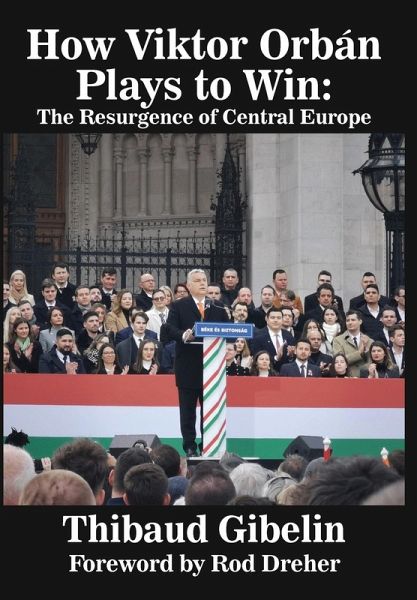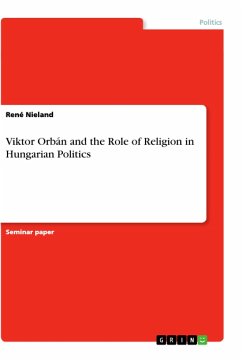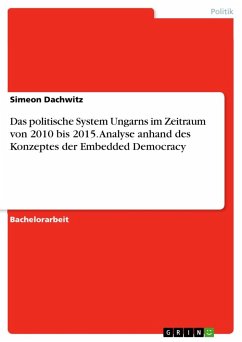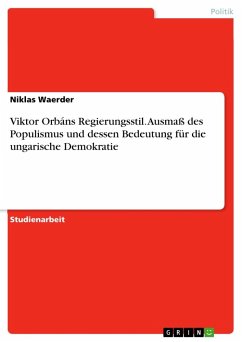
How Viktor Orbán Plays to Win
The Resurgence of Central Europe (Foreword by Rod Dreher)

PAYBACK Punkte
13 °P sammeln!
With Brexit complete, the European Union unbalanced, and populist national conservatism on the march across the continent, winds of rebellion continue to blow from Central Europe, where Hungary's dynamic leader Viktor Orbán has been building a political alternative to neoliberal statism. Prime Minister of Hungary from 1998 to 2002, Orbán's continuation in power since 2010 has marked a real European turning point as he transcends conventional divisions. He is an advocate of European unity, but a nemesis of the Brussels superstate. He is both democratic and illiberal, rigorous in economics, ye...
With Brexit complete, the European Union unbalanced, and populist national conservatism on the march across the continent, winds of rebellion continue to blow from Central Europe, where Hungary's dynamic leader Viktor Orbán has been building a political alternative to neoliberal statism. Prime Minister of Hungary from 1998 to 2002, Orbán's continuation in power since 2010 has marked a real European turning point as he transcends conventional divisions. He is an advocate of European unity, but a nemesis of the Brussels superstate. He is both democratic and illiberal, rigorous in economics, yet opposed to global free trade, a defender of the Christian West while eager to engage with China, Russia, and Iran. What will Orbán's legacy be in a Europe that he continues not merely to confound, but to lead? Thibaud Gibelin explores the recent trends to explain what is happening not only in Central Europe but across Europe today and sheds light on one of the most criticized - and yet most experienced - statesmen on the European scene.













